- Size
- Smallest
- Small
- Small to Medium
- Medium
- Large
- Giant
- Characteristics
- Smartest
- Hypoallergenic
- Fluffy
- Best Guard
- Best Family
- Best for Kids
- Low Shedding
- Healthiest
- Police Dogs
- Most Calm
- Quietest
- Color
- White
- Black
- Grey
- Brown
- Blue
- Red
- Coat
- Hairless
- Short
- Long
- Origin
- Japan
- China
- Australia
- Germany
- Italy
- United States
- France
- Group
- Hound
- Terrier
- Herding
- Toy
- Working
- Sporting
The Dove: A New Owner's Guide (What To Know)
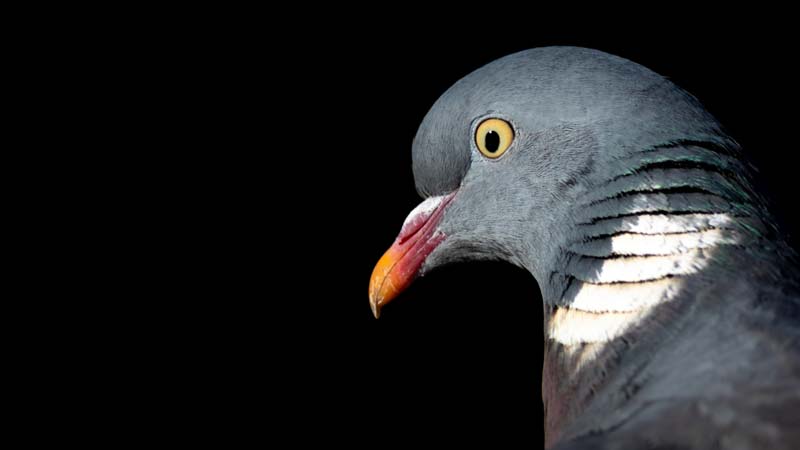
Photo by Vincent van Zalinge on Unsplash
The domestication of doves dates back thousands of years. They were among the first birds to be domesticated by humans for various purposes, including as messenger birds, food sources, and as symbols of love and fidelity.
Doves have a long history of symbolism, often associated with peace, love, purity, and spirituality. In various mythologies and religions, doves have held symbolic significance, representing different virtues and beliefs. For instance, in Christianity, the dove is a symbol of the Holy Spirit and peace.
Today, Doves are commonly kept as pets due to their gentle nature, beauty, and their ability to form strong bonds with their caretakers. They are valued for their cooing sounds, calm demeanor, and the sense of tranquility they bring to households.
Here's a guide on their care and basic information:
Basic Information
Species Traits:
Size: Doves are small to medium-sized birds, typically around 8-14 inches in length.
Lifespan: With proper care, they can live for 10-15 years or more.
Variety of Species: Popular species include Diamond Doves, Ringneck Doves, and Barbary Doves, each with unique colors and markings.
Housing and Environment:
Cage: Provide a spacious cage, considering they are larger than finches or canaries. A cage size of 24x24x24 inches or larger is recommended.
Location: Place the cage away from drafts and direct sunlight. Doves enjoy natural light but should have a shaded area in the cage.
Perches and Toys: Offer natural wood perches of varying diameters. Simple toys like swings or soft, chewable items are suitable.
Price:
In the USA, the price of pet doves can vary based on factors such as species, color mutations, age, and where you acquire them. On average, you might find:
Ringneck doves or Diamond doves: Typically range from $20 to $50 each.
Rarer species or doves with unique color mutations: Prices can be higher, ranging from $50 to $100 or more per bird.
Care Tips
Diet:
Seeds and Pellets: A quality dove seed mix or pellets specifically formulated for doves should be their primary diet.
Fresh Greens: Offer fresh vegetables like leafy greens, peas, and occasional fruits like berries for added nutrients.
Water: Ensure fresh, clean water is available daily in a secure water dispenser.
Health and Well-being:
Grooming: Doves keep themselves clean, but you can offer a shallow dish for bathing or misting to help maintain their plumage.
Veterinary Care: Regular check-ups with an avian vet help monitor their health and address any concerns promptly.
Mental Stimulation:
Simple Toys: Doves enjoy simple toys or items they can peck at or manipulate. Provide items like soft wood blocks or hanging items.
Cooing and Interaction: Doves are social and communicate through soft cooing. They appreciate calm interaction and will bond with their caregivers over time.
Handling and Interaction:
Gentle Approach: Approach your dove calmly and speak softly. They appreciate a gentle touch and may enjoy being perched on your finger.
Observation and Bonding: Spend time near their cage, talk softly, and offer treats to build trust and familiarity.
Conclusion
Doves' historical significance, from their sacred roles in ancient civilizations to their representation of peace and their presence as cherished pets, underscores their enduring place in human culture and hearts across the globe.
Doves thrive on a peaceful environment, social interaction, mental stimulation, a varied diet, and a spacious living space. By providing proper care and attention, you'll ensure a serene and contented life for your dove companions. Understanding their behaviors and preferences will help tailor their care to suit their needs.
You May Also Like
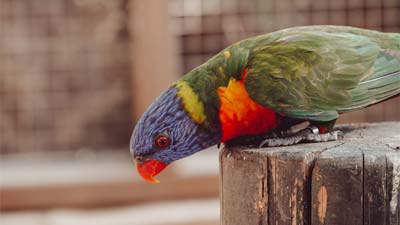 Other Pets, Pet BirdsThe Lineolated Parakeet: A New Owner's Guide (What To Know)
Other Pets, Pet BirdsThe Lineolated Parakeet: A New Owner's Guide (What To Know)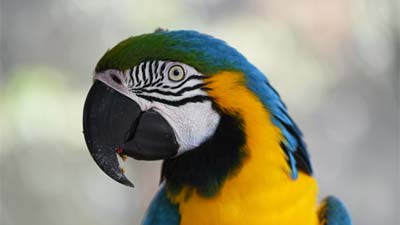 Other Pets, Pet BirdsThe Pionus Parrot: A New Owner's Guide (What To Know)
Other Pets, Pet BirdsThe Pionus Parrot: A New Owner's Guide (What To Know)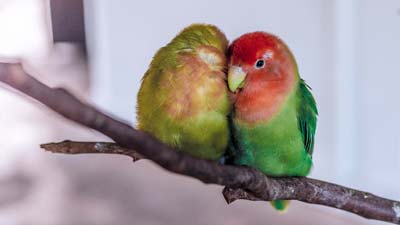 Other Pets, Pet BirdsThe Lovebird: A New Owner's Guide (What To Know)
Other Pets, Pet BirdsThe Lovebird: A New Owner's Guide (What To Know)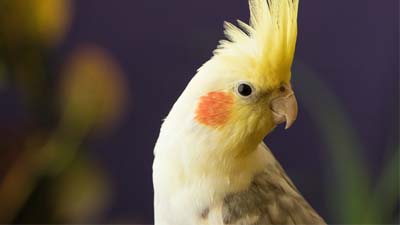 Other Pets, Pet BirdsThe Cockatiel: A New Owner's Guide (What To Know)
Other Pets, Pet BirdsThe Cockatiel: A New Owner's Guide (What To Know)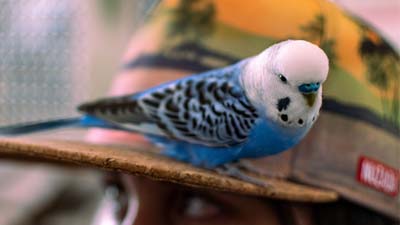 Other Pets, Pet BirdsThe Budgerigar: A New Owner's Guide (What To Know)
Other Pets, Pet BirdsThe Budgerigar: A New Owner's Guide (What To Know)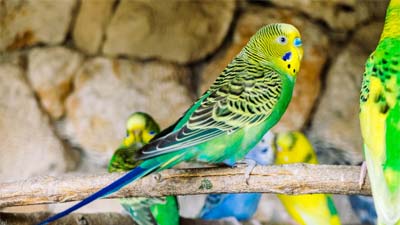 Other Pets, Pet BirdsThe Canary: A New Owner's Guide (What To Know)
Other Pets, Pet BirdsThe Canary: A New Owner's Guide (What To Know)